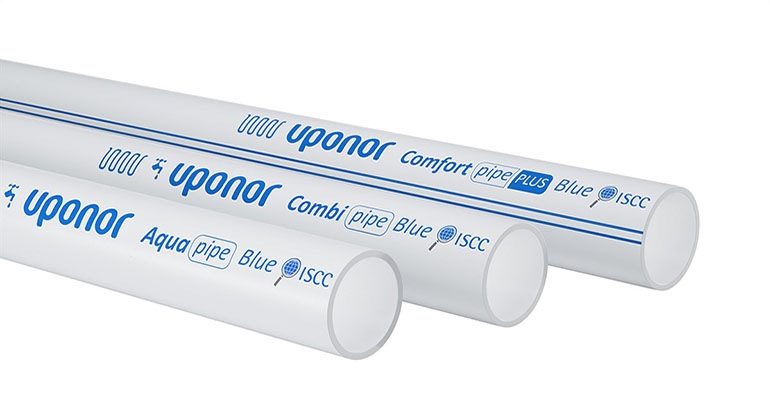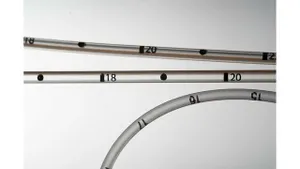World’s First Pipes Made From Cross-Linked Polyethylene with Renewable Feedstock Enter Market
PEX Blue Pipe, the result of a collaboration between Borealis and Uponor, achieves up to a 90% carbon footprint reduction compared with conventional cross-linked polyethylene pipes.
June 13, 2022

Vienna-based chemicals company Borealis announced today the introduction of what it says is the world’s first pipe portfolio made from cross-linked polyethylene (PE-X) with renewable feedstock that carries mass balance accreditation under the ISCC Plus program. Compared with conventional PE-X pipes, the PEX Pipe Blue product line reportedly achieves a carbon footprint reduction of up to 90%.
Borealis collaborated with Finland-based Uponor, a supplier of piping and other infrastructure products, to develop PEX Pipe Blue. Based on its Bornewables PE derived from second-generation natural resources, such as waste from pulp production or residues from food processing oils, the new PEX Pipe Blue products will help customers in building and construction achieve their sustainability targets in plumbing and heating, ventilation, and air-conditioning installations.
Since introducing PE-X pipes 50 years ago, Uponor has continuously sought to improve its product offering and processes. “The fact that we can now offer our customers 100% renewables-based PEX Pipe Blue means [the construction industry] can greatly reduce the climate footprint of its installations and meet tomorrow’s [circularity goals] today,” said Robert Molund, Managing Director, Uponor AB. “With the use of Bornewables feedstock and the huge CO2 reduction opportunity, we are convinced that PEX Pipe Blue will soon be the new reference standard in this important market.”
The carbon footprint of PEX Pipe Blue is based on Environmental Product Declaration (EPD) calculations according to EN15804+A1 and CML/ISO21930 standards. EPD evaluates the environmental impact of products by means of life cycle assessments. All the data is verified by an independent third party, said Borealis.
Likewise, ISCC Plus accreditation is based on third-party mass balance, a chain of custody model that enables sustainable content to be tracked, traced, and verified through the entire value chain, offering sustainability-assured products from feedstock to end product. This means that for every tonne of certified Bornewables PE-X used in production, an equivalent amount of PEX Pipe Blue can be claimed as certified renewable, without compromising on quality or efficiency. To ensure that all requirements are met, Borealis and Uponor’s ISCC PLUS certificates are audited annually.
“We are delighted to be able to make such a significant contribution to the circular progress of the plastics infrastructure and pipe industries,” said John Webster, Global Commercial Director, Infrastructure, for Borealis. “Real advances toward greater sustainability and carbon neutrality require dedicated collaboration with value chain partners that share common goals. PEX Pipe Blue with Bornewables is an impressive example of what can be achieved when market leaders join forces.”
Borealis has also announced that it will be exhibiting at K 2022, which takes place in Düsseldorf, Germany, from Oct. 19 to 26. The new Bornewables pipe solution produced in collaboration with Uponor will be on display in hall 6 at stand A43.
You May Also Like


